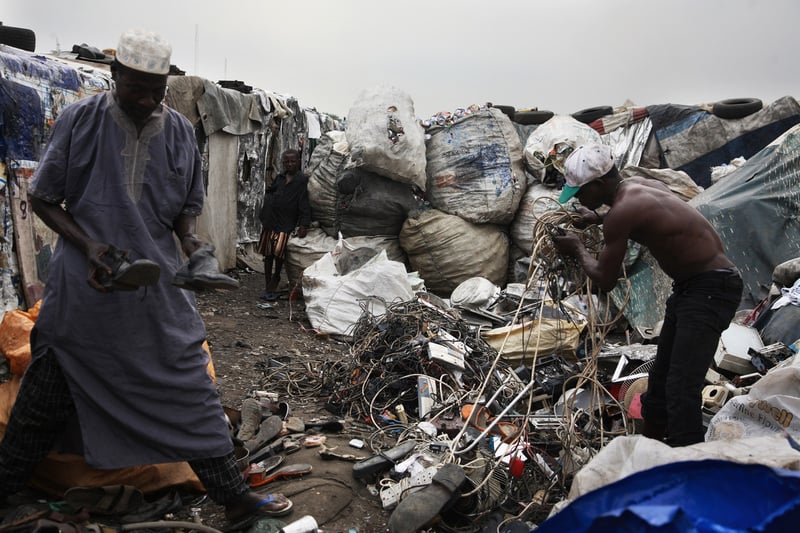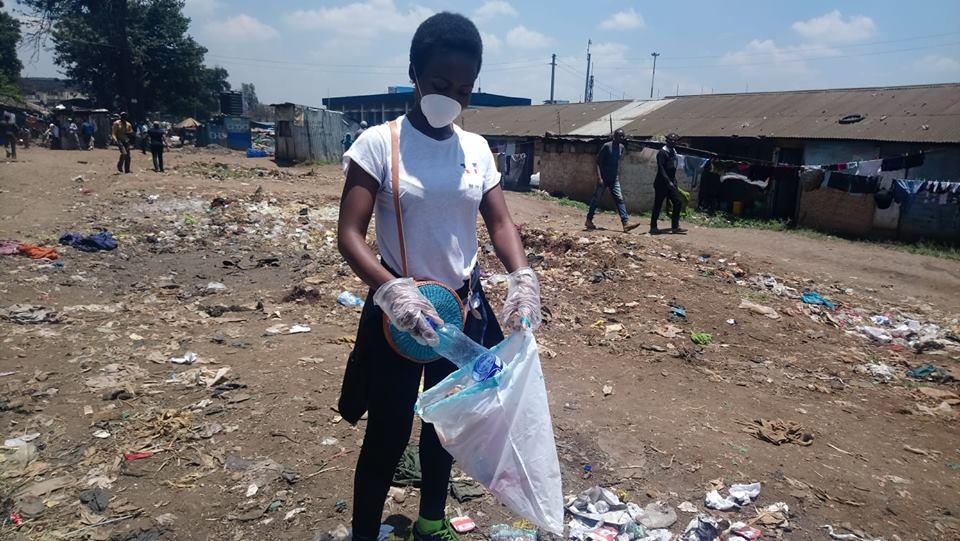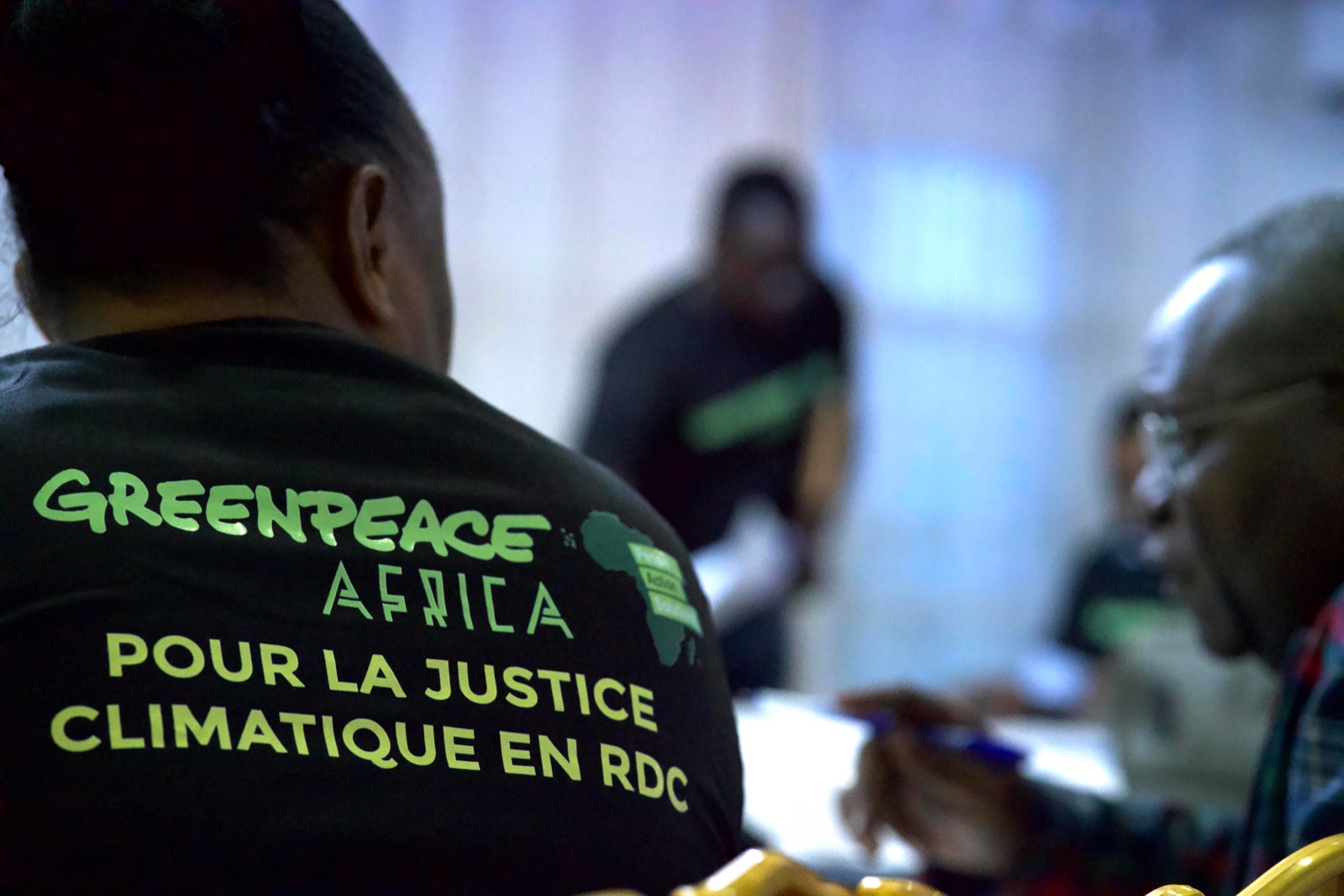
REACTIVE
Johannesburg, 30 March 2021 – The United Nations Environment Programme (UNEP) launched a scathing report about plastic and environmental inequality, which shows how countries within the Global South are being force-fed plastic pollution by wealthy countries.
The report, titled Neglected: Environmental Justice Impacts of Plastic Pollution, exposes the truth about how the plastic industry is capitalising on “false solutions” such as recycling when, in fact, single-use plastic waste is more likely being shipped off to developing countries than being recycled. It also demonstrates the impact of plastic, at every stage of its production, on underprivileged communities – from the oil extraction to its disposal in the environment, to its incineration, should it even reach this point.
Responding to the report’s findings, Greenpeace Africa Pan-African Plastic Lead, Angelo Louw said:
“This report is a big wake up call as far as the extent to which the plastic industry is willing to go make a quick buck, at the expense of everyone else – especially people of colour, who are the majority in these types of communities and countries. They have no consideration for the disadvantaged communities that they are driven even further into disarray.
“The plastic industry even bullies our governments, who are trying their best to manage the plastic pollution crisis, into bending their laws so that they can continue with their profit making agenda. Last year, we exposed an example of corporate attempts to destabilise Africa’s plastic-free ambitions, where the American Chemistry Council lobbied to include clauses in on-going Kenya-US free trade agreement negotiations which undermine their single-use plastic bans.
“In countries like the DRC, corporations are ignoring anti-plastic legislation and this is forcing governments to make large investments into the enforcement of these laws. Why should our countries be burdened with the additional cost? Why can’t corporations respect our laws? Why can they respect our decision to achieve a healthy life?”
ENDS
Note to editors:
- Photos of plastic waste in Kinshasa available for download and use (with credit):
https://media.greenpeace.org/Share/16s8vusswhbcpksht306wr143s8be867
- The report recommends that governments need to implement extended producer responsibility schemes to hold businesses accountable for their plastic waste and encourage the transition to more circular economies
- Greenpeace Africa plastic lead exposes plastic-related environmental injustice in his neighbourhood: video
Contact for questions and interviews:
Greenpeace Africa Press Desk: [email protected]
Hellen Dena, Communications and Story Manager, [email protected], +254 717 104 144





Discussion
Good day Hellen Yes indeed the damage and distruction caused by plastics both in our environment and animals is very huge. The attitude of the wealthy countries in so far as systemic exacerbating this through religating it in many forms than one to countries in the South smells of hypocricy. South Africa needs to be confronted from all angles but not to the detriment of the entire society and sadly we are talking about this at a very sad moment in the history of our country. I wish to urge your organisation to introduce and support multiple approaches to address this including exposing even the munipalities and rural areas where there is rampant escalation of this. What used to be beautiful landscapes have turned into multiple colours of life distraction for i dont want to refer to it as though am apreciatiating by referring to this flowery. I will be taking pictures of our environment and would like to send them for public exposure so that the rest of the world could see this malice. Some are burnt contrary to the provisions of Sec 24 of the Constitution.
Good day Xolo Thank you for sharing your concerns with us. Indeed, plastic waste is a global catastrophe; hence we need to stop it at the source. When the production of single-use plastic products stops, plastic waste stops, high usage of fossil fuels stops, environmental plastic catastrophe is reduced.
Funny in as much as these countries need money 4 development why should they risk future generations with plastic waste. Its a known fact that yes there's environmental degradation more so of timber 4 pulp but still alternate environmental friendly materials are available..This new plasticolonialism trend is not only absurd but absolutely inhuman. Let the government officers in these scandals be brought to book and strigrnt measures put in place to manage waste disposal. Africa isn't garbage to the whole world..kindly show some respect. And our leaders stand firm from being compromised wth goodies in name of trade tarrifs...my take.
Good day Thank you for your comment. Indeed 💯, Africa is no dumpster!
When we gate together we can do more. We need" Mama AfRICA" free from any pollution . Please !! Give chance to ETHIOPIA
Thank you for your comment. Indeed 💯!